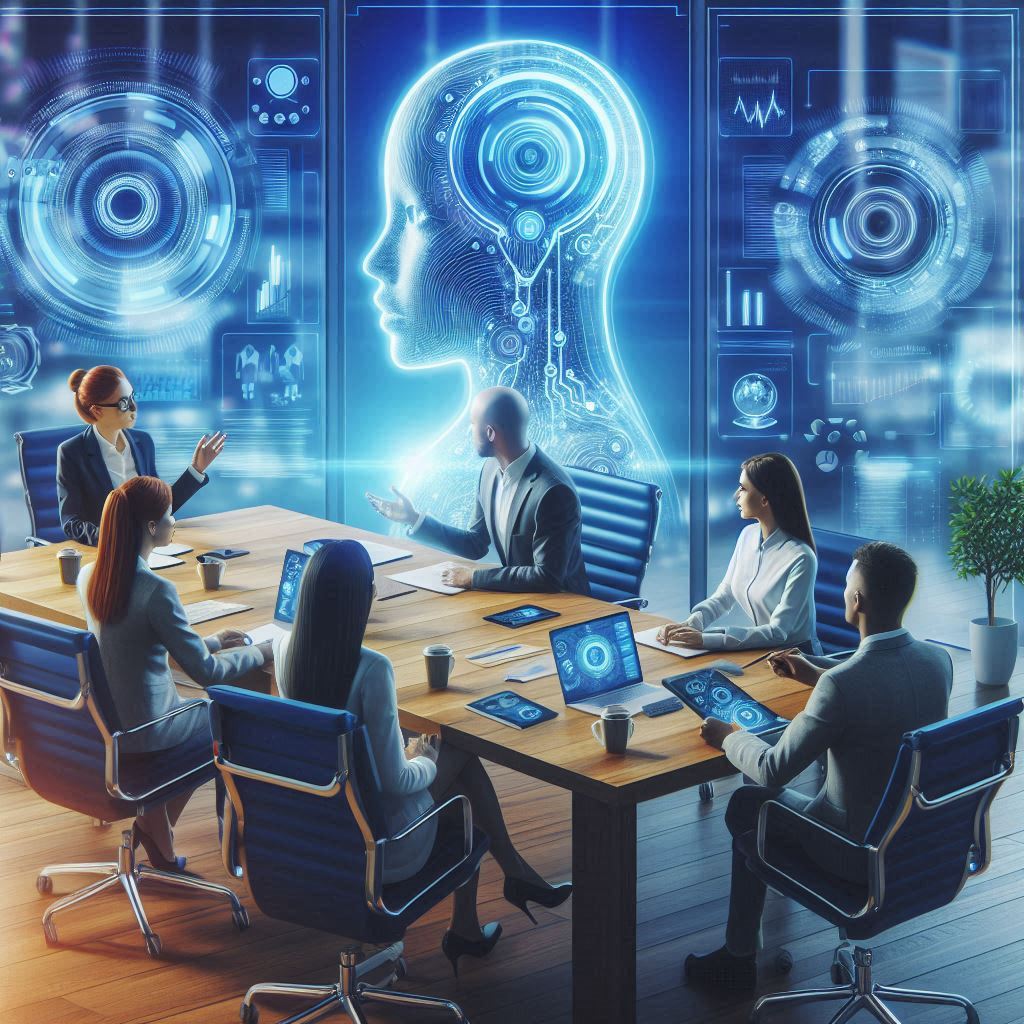Imagine a world where your marketing campaigns are not only efficient but also incredibly personalized, driving unprecedented engagement and conversion rates. This is not a distant dream but a reality made possible by Artificial Intelligence (AI). In this article, we will explore how AI can revolutionize and enhance your marketing strategies, making them more effective and impactful.
Key Takeaways
- AI can personalize customer experiences, leading to higher engagement and conversion rates.
- Automation of repetitive tasks allows marketers to focus on strategic planning.
- AI-driven analytics provide deeper insights into customer behavior and preferences.
- Enhanced targeting and segmentation through AI can optimize ad spend and improve ROI.
Personalizing Customer Experiences
One of the most significant advantages of AI in marketing is its ability to personalize customer experiences. By analyzing vast amounts of data, AI can identify patterns and preferences, allowing marketers to tailor content and offers to individual customers. For instance, Netflix uses AI-driven machine learning technology to provide personalized content recommendations based on a user’s preferences and past behavior. This level of personalization not only enhances user experience but also increases engagement and loyalty.
Similarly, AI-powered chatbots like Ada can offer human-like customer support and social media engagement. These chatbots can adopt a conversational tone, making interactions more engaging and effective. For example, Ada’s technology helped the Malaysian ride-hailing service Grab expand its reach into international markets through multilingual chatbot technology, significantly reducing customer query backlogs and driving growth in new markets.
Automating Repetitive Tasks
AI can automate many repetitive tasks that consume valuable time and resources. From resizing and formatting creative content to translating and personalizing messages for thousands of people, AI can handle these tasks efficiently. This automation allows marketers to focus on strategic planning and creative thinking, ultimately leading to more innovative and effective campaigns.
For example, AI-driven customer support platforms can handle routine inquiries, freeing up human agents to tackle more complex issues. This not only improves efficiency but also enhances customer satisfaction by providing quicker responses. Additionally, AI can automate ad buying and placement, optimizing ad spend and ensuring that ads reach the right audience at the right time.
Gaining Deeper Insights with AI-Driven Analytics
AI-driven analytics can provide deeper insights into customer behavior and preferences, enabling marketers to make data-driven decisions. By analyzing data from various sources, AI can identify trends and patterns that may not be immediately apparent. This information can be used to refine marketing strategies, optimize campaigns, and improve overall performance.
For instance, The Economist leveraged AI-driven programmatic advertising to analyze consumer data and identify new audience segments. By focusing on matching cookie, subscriber, and additional data sets, the publication was able to discover new segments and create lookalike audiences, resulting in a significant boost in readership and a 10:1 return on investment.
Enhancing Targeting and Segmentation
AI can significantly enhance targeting and segmentation, ensuring that marketing messages reach the most relevant audience. By analyzing customer data, AI can identify specific segments based on behavior, preferences, and demographics. This allows marketers to create highly targeted campaigns that resonate with their audience, leading to higher engagement and conversion rates.
For example, AI can analyze social media interactions to identify potential customers and tailor messages to their interests. This level of precision targeting can optimize ad spend and improve ROI. Additionally, AI can help marketers identify and target high-value customers, ensuring that resources are allocated effectively.
Conclusion
In summary, AI has the potential to revolutionize marketing strategies by personalizing customer experiences, automating repetitive tasks, providing deeper insights through analytics, and enhancing targeting and segmentation. By leveraging AI, marketers can create more effective and impactful campaigns, driving engagement and conversion rates to new heights.
Ready to take your marketing strategies to the next level? Explore our Effective Workshops for Tech Companies and Interactive Digital Marketing Workshops to learn more about maximizing AI potential in marketing.
FAQ
How does AI improve customer support?
AI improves customer support by automating routine inquiries and providing quick, accurate responses. This frees up human agents to handle more complex issues, enhancing overall efficiency and customer satisfaction.
Can AI help with content creation?
Yes, AI can assist with content creation by generating personalized content based on user preferences and behavior. This can include everything from personalized emails to tailored social media posts.
What are some examples of AI in digital advertising?
AI is used in digital advertising to optimize ad placement and targeting. For example, The Economist used AI-driven programmatic advertising to identify new audience segments and create targeted campaigns, resulting in a significant boost in readership.
How can AI-driven analytics benefit marketers?
AI-driven analytics provide deeper insights into customer behavior and preferences, enabling marketers to make data-driven decisions. This can help refine marketing strategies, optimize campaigns, and improve overall performance.
What are the benefits of AI-powered chatbots?
AI-powered chatbots can offer human-like customer support and social media engagement, making interactions more engaging and effective. They can handle routine inquiries, freeing up human agents to tackle more complex issues, and provide quick, accurate responses, enhancing customer satisfaction.



